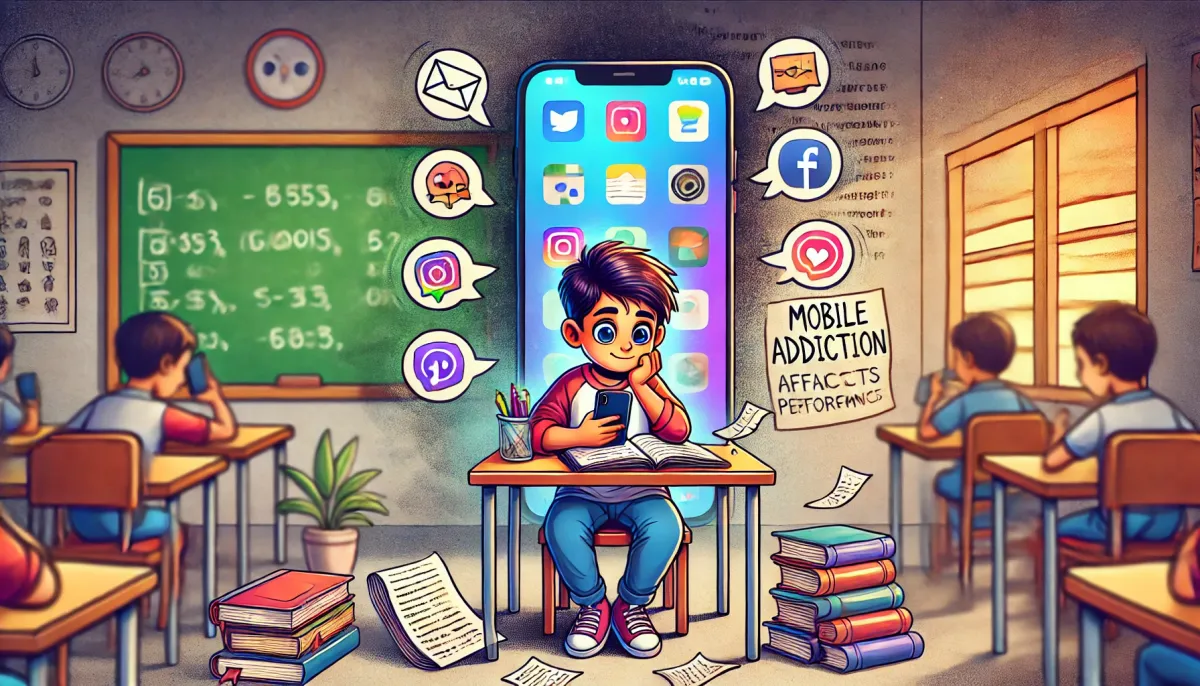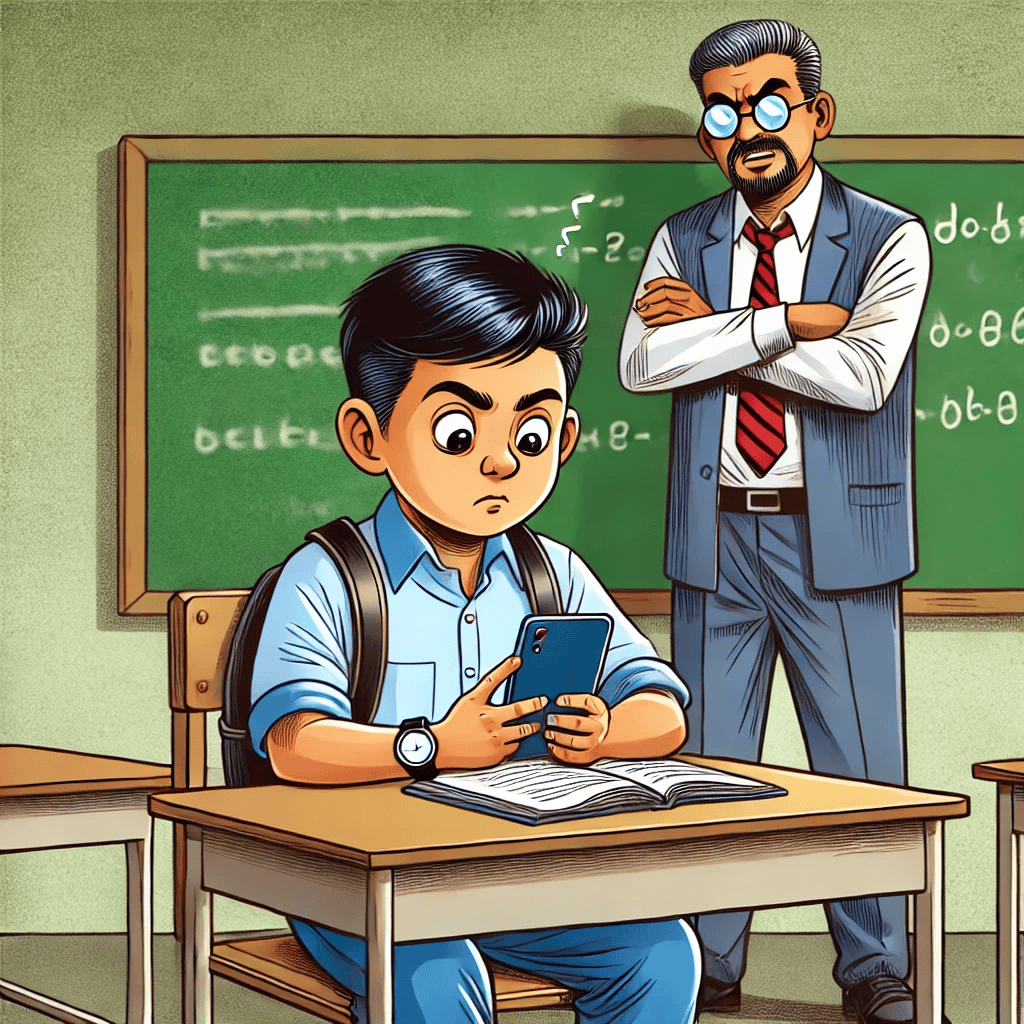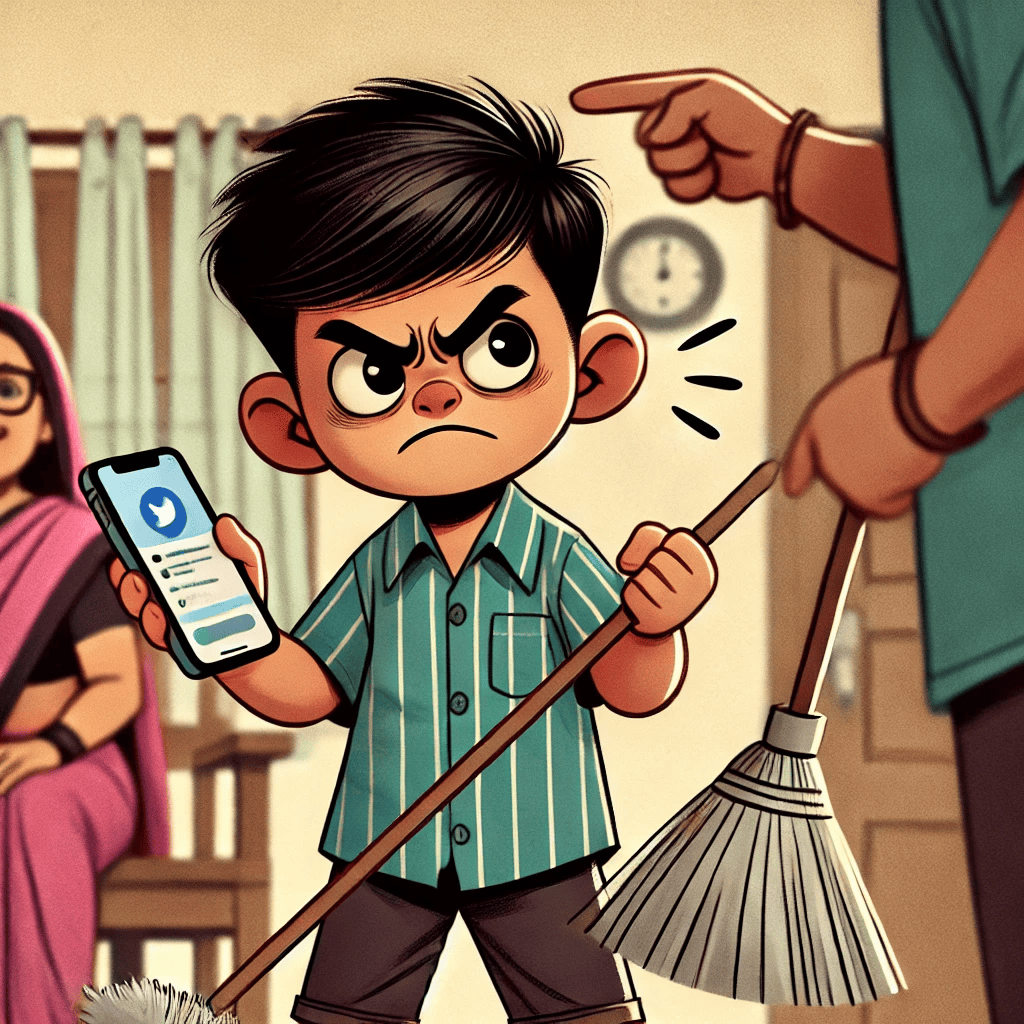The Impact of Mobile Addiction on Student Performance
In today's world, almost everyone has a mobile phone. These devices help us stay connected, find information, and have fun. However, some students spend too much time on their phones.

In today's world, almost everyone has a mobile phone. These devices help us stay connected, find information, and have fun. However, some students spend too much time on their phones. This can lead to mobile addiction, which affects students in many ways.
Impact on Academic Performance
Mobile addiction can hurt how well students do in school. Students who focus too much on their phones might not pay enough attention to their studies.

- Reduced Concentration: Constant notifications and messages can distract students from their homework.
- Lower Grades: Spending too much time on phones means less studying, which may cause lower test scores.
- Incomplete Assignments: Students may forget or rush through homework because they are busy on their phones.
- Procrastination: Students might put off studying to play games or chat on their phones.
When students are addicted to their phones, their schoolwork can suffer. Students need to balance their time to do well in school.
Effects on Physical Health
Mobile addiction can also affect students' physical health. Staying on phones for long periods can cause different health problems.

- Eye Strain: Looking at screens for too long can hurt students' eyes.
- Poor Sleep: Using phones before bed can make it harder to fall asleep.
- Lack of Exercise: Students might not get enough physical activity if they spend all their time on their phones.
- Posture Problems: Holding phones for a long time can lead to neck and back pain.

These health issues can make students feel unwell. Taking breaks from phones can help students stay healthy.
Social and Emotional Consequences
Mobile addiction can change how students interact with others. It can affect their friendships and how they feel.
- Isolation: Students may spend less time with friends and family in person.
- Anxiety and Stress: Too much time on social media can make students feel worried or sad.
- Cyberbullying: Spending more time online increases the chance of facing online bullying.
- Reduced Communication Skills: Students might find it harder to talk to people face-to-face.

These effects can make students feel lonely or unhappy. It's important to have real-life interactions with others.
Distraction and Time Management Issues
Mobile addiction can make it hard for students to manage their time. Distractions from phones can keep them from important tasks.

- Interruptions: Frequent phone use interrupts studying and learning.
- Poor Time Management: Students may lose track of time while using their phones.
- Delayed Responsibilities: Important tasks may be postponed because of mobile use.
- Decreased Productivity: Students might get less done when distracted by their phones.

By controlling phone use, students can manage their time better and be more productive.
Conclusion
In summary, mobile addiction can affect students in many negative ways. It can harm their academic performance, physical health, social life, and time management. Students should try to use their phones responsibly to avoid these problems. Balancing phone use with other activities can help students succeed and stay healthy.



